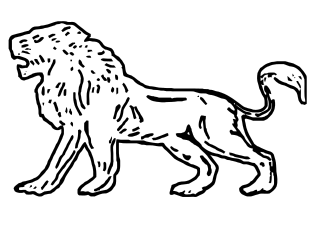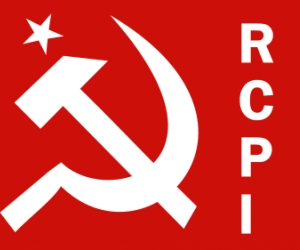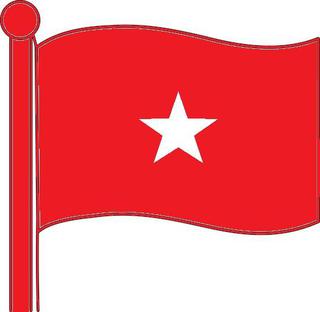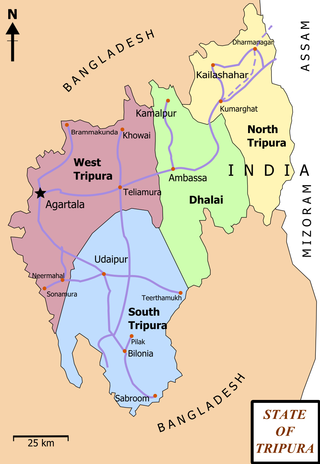
The All India Forward Bloc is a left-wing nationalist political party in India. It emerged as a faction within the Indian National Congress in 1939, led by Subhas Chandra Bose. The party re-established as an independent political party after the independence of India. It has its main stronghold in West Bengal. The party's current Secretary-General is G. Devarajan. Veteran Indian politicians Sarat Chandra Bose and Chitta Basu had been the stalwarts of the party in independent India.

Revolutionary Socialist Party (RSP) is a communist party in India. The party was founded on 19 March 1940 by Tridib Chaudhuri and has its roots in the Bengali liberation movement Anushilan Samiti and the Hindustan Socialist Republican Army.

The Revolutionary Communist Party of India is a political party in India. The party was founded as the Communist League by Saumyendranath Tagore in 1934, breaking away from the Communist Party of India (CPI). RCPI led armed uprisings after the independence of India, but later shifted to parliamentary politics. The party is active in Assam, Kerala, West Bengal, Telangana and Andhra Pradesh. The party was represented in the West Bengal while being a part of Second United Front Cabinet (1969) as well as in various state government during the Left Front rule in the state (1977–2011). In Assam, the party won four Legislative Assembly seats in 1978, but its political influence has since declined in the state.
All India Forward Bloc (Ruikar) was a political party in India, emerging out of split from the All India Forward Bloc.
Kamal Guha (1928–2007) was an Indian politician. He was an All India Forward Bloc leader and member of the Left Front cabinet in the Indian state of West Bengal for over two decades.
Communism in India has existed as a social or political ideology as well as a political movement since at least as early as the 1920s. In its early years, communist ideology was harshly suppressed through legal prohibitions and criminal prosecutions. Eventually, communist parties became ensconced in national party politics, sprouting several political offshoots.

The Bolshevik Party of India is an Indian political party in India. The party was founded in 1939. The party had a certain role in the trade union movement in West Bengal and was briefly represented in the state government in 1969. In later years the party has played a negligible role in Indian politics.
Sukinda is a Vidhan Sabha constituency of Jajpur district, Odisha.
The partial list of political families of West Bengal state of India.

Legislative Assembly election was held in 2016 for the 294 seats of the Vidhan Sabha in the state of West Bengal in India. The All India Trinamool Congress under Mamata Banerjee won 211 seats, and thus was reelected with an enhanced majority. Like in the 2011 election, the poll was held in six phases, with the first phase divided into two days. The first phase was held in Naxalite-Maoist affected Red corridor areas with two polling dates: 4 April and 11 April. The other phases were held on 17, 21, 25, 30 April and 5 May. The result of the election was declared on 19 May.

The Left Front is an alliance of left-wing political parties in the Indian state of West Bengal. It was formed in January 1977, the founding parties being the Communist Party of India (Marxist), All India Forward Bloc, the Revolutionary Socialist Party, the Marxist Forward Bloc, the Revolutionary Communist Party of India and the Biplobi Bangla Congress. Other parties joined in later years, most notably the Communist Party of India.

Legislative Assembly elections was held in the Indian state of West Bengal on 14 June 1977. The polls took place after the ousting of Indira Gandhi's government at the Centre. The Left Front won a landslide victory. The 1977 election marked the beginning of the 34-year Left Front rule in West Bengal, with Communist Party of India (Marxist) leader Jyoti Basu leading the first Left Front cabinet. The election finally put to rest, the decade-long political instability that had begun since 1967.

Legislative Assembly elections were held in the Indian state of West Bengal in 1982. The Left Front, which had won the 1977 West Bengal Legislative Assembly election, emerged victoriously. The Indian National Congress emerged as the main opposition party in the state, as the Janata Party was disintegrating.

Legislative Assembly elections were held in the Indian state of West Bengal in 1991. The election took place simultaneously with the 1991 Indian general election. The term of the assembly elected in 1987 lasted until February 1992, but the West Bengal government asked the Election Commission of India to arrange the election at an earlier date.
The Left Front is a political alliance in the Indian state of Tripura. The Left Front governed Tripura 1978–1988, and again from 1993 to 2018. The Communist Party of India (Marxist) is the dominant party in the coalition. The other members of the Left Front are the Communist Party of India, the Revolutionary Socialist Party, and the All India Forward Bloc.

Legislative Assembly elections were held in the Indian state of West Bengal in 1971. The assembly election was held alongside the 1971 Indian general election.
In 1953, a by-election was held for the Calcutta South East seat in the Lok Sabha. The by-election was called after the death of the incumbent parliamentarian from Calcutta South East, Syama Prasad Mukherjee. The election saw the internationally renowned barrister Radhabinod Pal defeated by a young communist barrister Sadhan Gupta.
Calcutta South East was a constituency of the Lok Sabha, located in the city of Calcutta, West Bengal. It was used in the parliamentary election of 1951–1952 as well as in a 1953 by-election. The constituency elected a single member of the Lok Sabha. As of 1952, the constituency had 381,486 eligible voters.
The Revolutionary Communist Party of India, also known as RCPI (Tagore), was a political party in India, led by Saumyendranath Tagore. RCPI (Tagore) emerged from a split in the Revolutionary Communist Party of India in 1948. RCPI (Tagore) had a very minor role in Indian politics. Tagore served as the chairman of the party. The party published the Bengali fortnightly Ganabani ('People's Voice').

The 1993 Tripura Legislative Assembly election took place in a single phase on 15 February 1993 to elect the Members of the Legislative Assembly (MLA) from each of the 60 Assembly Constituencies (ACs) in Tripura, India.